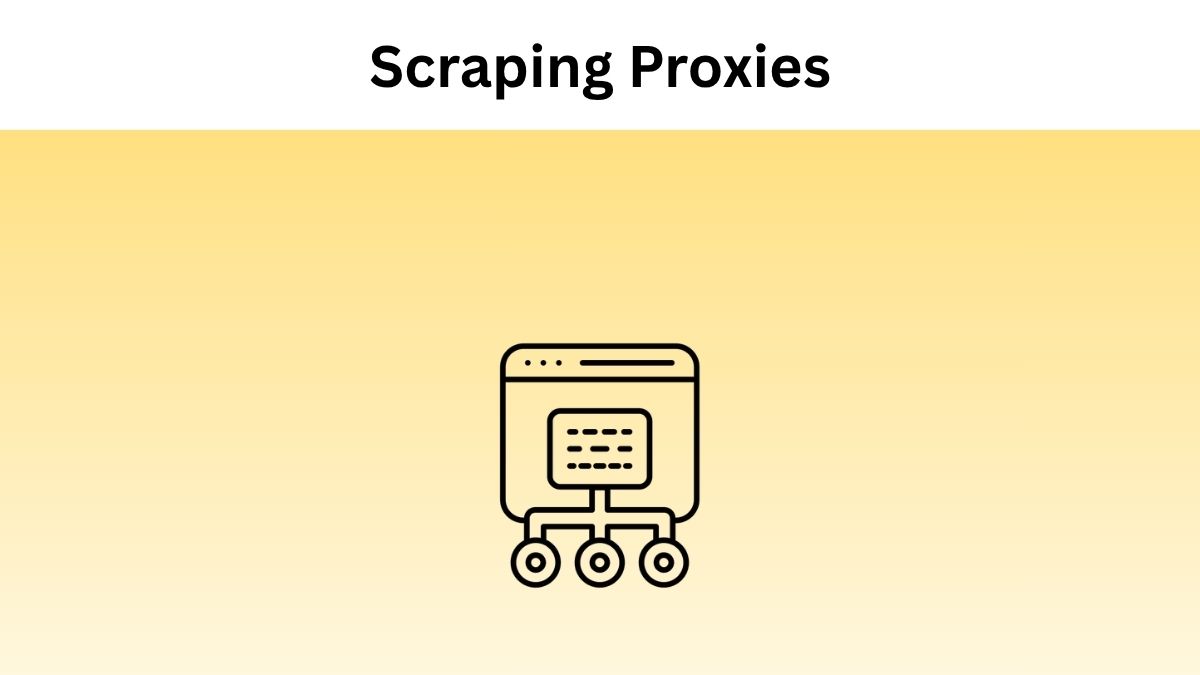Web scraping is the process of extracting data from websites. The practice is ever-changing and incorporates the use of scraping proxies, which can revolutionize how data is traditionally collected. These methods include, but are not limited to, revealing anonymity, acquiring data located in a specific region, and maintaining a fair share of the workload. One key factor changing the blockage of IPs is that businesses want more, and they are also harnessing the power of web resources through proxies. This is one of the essential roles of scraping proxies: helping clear blocks while maintaining security and optimizing scraping capacity and efficiency.
Understanding Proxies and How They Work
Proxies as Intermediaries
When automating data extraction, a data scraping API often streamlines the process by handling proxies. Many of the best web scraping APIs include built-in proxy management, helping users avoid the complexity of manual setup and rotation. Proxies as Indirect Mediators: Proxies act as intermediaries between your computer equipment and the Internet. They hide your IP address and act anonymously while you are scraping. The IP address of the client making the requests is hidden, and the destination website cannot monitor your actions.
Types of Proxies
Here are the types of proxies for data extraction purposes:
- HTTP proxies: These work with web traffic, and thus are mainly used for web scraping
- SOCKS proxies: These handle all traffic, not just the web traffic
- Transparent proxies: Do not hide your IP address; they are often used for content caching
- Reverse proxies: safeguard web servers by serving as a gateway for incoming traffic
- Anonymous proxies: As the term suggests, they hide your IP address, making you anonymous, just as a proxy would.
Also Read: What is Structured Data in SEO?
Proxy Functionality and Setup
When a client has a proxy account, he will probably perform such “proxy” adjustments. A proxy must be configured in the browser settings with a proxy IP address and port number. In this case, a user accesses the internet using an IP address other than their own, which benefits privacy and security.
Use Proxies for Effective Data Collection
Proxies are integral to effective data collection where the source of information limits access through IP addresses. When a shroud of various IP addresses and rotating proxies helps evade bans, more reports can be gathered. Finally, the accuracy and reliability of data mining results should always be verified to ensure more reliable findings. For businesses or researchers seeking to scale safely, selecting the best mobile proxy providers ensures stable connections, broader IP coverage, and reliable data collection.
Security and Legal Considerations
To use proxies, you should be confident that your activities are secure and legal. Follow the providers’ terms of service and applicable laws to avoid any conflicts. This respect is vital for securing your online behaviour and promoting ethical use of technology.
Also Read: How Proxies Boost Your Privacy and Protect Your Online Activities
Proxies – Applications and Benefits
Proxies have multiple use cases, including data mining, market research, quality assurance, IP rotation, and circumventing geographical limitations. They are especially helpful for environments that want to monitor and control Internet use, such as offices or schools. With a comprehensive understanding of how proxies work and how to execute them properly, you can significantly enhance your data collection processes. Simultaneously, proxies help maximize the quality of your security and anonymity.
Overcoming Anti-Scraping Techniques with Proxies
Evading Rate Limiting and IP Blocks
Dynamic IP Rotation: It is essential to rotate IP addresses and user agents for each request to prevent rate limiting and IP blocks. Rotating the request source ensures that websites cannot detect a pattern and block your scraping.
Use of High-Quality Proxies: To avoid detectable proxies, one must use proxies that have not been banned and whose IPs have few users. This helps reduce the risk of being served CAPTCHA or other blocking protocols.
Advantages of Residential Proxies
- Anonymity and Reliability: Residential proxies provide genuine IP addresses, reducing the likelihood that servers will detect them as proxies.
- Geo-targeting and Scalability: These proxies also provide the possibility of geo-targeted scraping with no concern about blanket bans, as they would be quite challenging and expensive to obtain
- Automation and Compatibility: Residential proxies are suitable for multiple data collection tasks thanks to their ability to scale request volume. Secondly, they work with different automation tools and are thus compatible with many other scraping technologies.
Also Read: Common Mistakes When Using cURL with a Proxy
Conclusion
In summary, proxies for scraping redefine how data is gathered, ensuring anonymity, bypassing anti-scraping protocols, and maintaining security. As intermediaries, the proxies conceal the IP address, ensuring the scrape operation runs uninterrupted. Platforms seeking to ban scraping can be avoided by using dynamic IP rotation and top-tier residential proxies that offer the highest degree of secrecy and security. As a result, when proxies are implemented, the volume of harvested data grows, and the information compiled is genuine and manageable.

